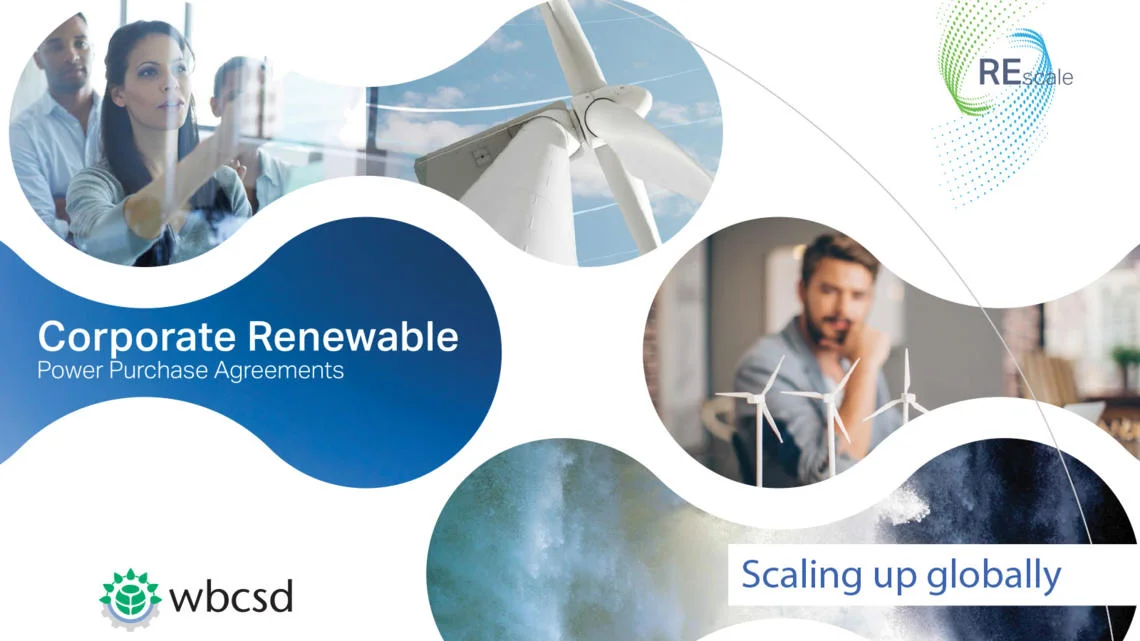A report that guides companies through the process of procuring renewable power via Power Purchase Agreements (PPAs).
More than 40% of Fortune 500 companies now have targets relating to renewable energy procurement, energy efficiency or cutting GHG emissions. This fast-growing number of companies is procuring power from renewable sources to reduce their carbon footprint and showcase leadership, as well as to mitigate energy procurement costs and risks. The business case for corporate buyers to procure renewables includes:
- Economics – long-term electricity cost affordability and improved price visibility;
- Sustainability – reductions in carbon emissions and progress towards renewables targets;
- Leadership – recognition for renewable electricity achievements and climate leadership.
This report walks companies through the opportunities that PPAs offer. It also addresses the obstacles corporate buyers and developers face as they plan and negotiate PPAs and proposes valuable solutions for corporate buyers and developers alike. The report takes a global approach highlighting countries that present the best potential for corporate renewables – such as Chile and Argentina or India.
The report was drawn up by EY and Norton Rose Fulbright LLP in collaboration with member companies of WBCSD’s Corporate Renewable PPA forum. The forum works to scale corporate renewable PPAs globally and to enhance understanding of electricity buyers from any industry to use PPAs. It is part of WBCSD’s REscale business solution – designed to increase and accelerate the deployment of renewables. REscale consists of companies from different industries and markets, including ABB, BT, DSM, CLP, CPFL Energia, DNV GL, EDF, EDP, Enel, Eskom, First Solar, Iberdrola, Nestlé, NRG, Schneider Electric, State Grid Corporation of China and Unilever as well as partners such as RE100, the Clean Energy Ministerial and the World Resource Institute.

